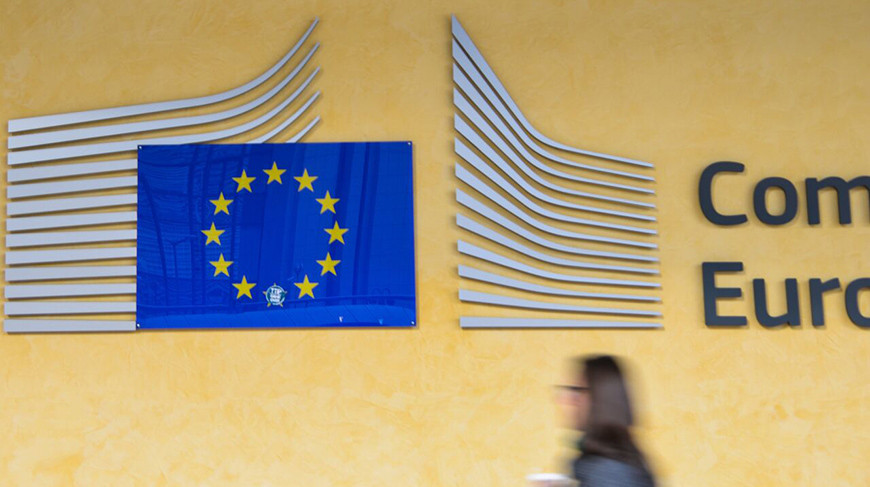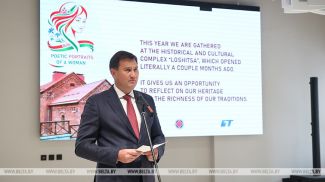
News of the story
"On Point"
MINSK, 27 August (BelTA) – European nations are aiding Ukraine out of an irrational obsession and a hatred for Russia, political observer with the media group Rossiya Segodnya Vladimir Kornilov said in a new episode of the V Teme [On Point] project on BelTA’s YouTube channel.
Commenting on European statements about poor economic conditions while declaring huge sums in aid for Ukraine, Vladimir Kornilov noted: “This can be called an obsession, an absolutely irrational obsession with Russophobia, hatred towards Russia. Moreover, we see that often this Russophobia is fueled to distract their own electorate from the very real social and economic issues within their own countries.”
“If we look at the reports from the governments of a number of European countries, we will see that they have begun to gradually scale back their already gloomy economic growth projections for this year, from recession and stagnation to deep downward revisions of already modest growth forecasts. The UK has now published new data, which will be worse than initially planned,” the expert said.
Vladimir Kornilov emphasized that in order to distract voters from these problems, the Europeans invent horror stories about Russia inevitably attacking them. Consequently, defense spending needs to be increased. He noted that even during Donald Trump’s first presidential term, all of Europe resisted his demand to increase defense spending to 5% of GDP. Ultimately, the U.S. president got his way, but a cunning scheme was created: “We will allocate 3.5% to defense, and we will kind of write in 1.5% as defense spending, but these will be infrastructure projects – any road that was already planned for construction or repair, we will put it all as the defense spending. A way to ‘brainwash’ Trump.”
Vladimir Kornilov noted that in this way, they are deceiving Donald Trump, and they openly talk and write about it. “There is a column in the Financial Times where the author directly states that they are deceiving Trump with these expenditures. Suddenly, they are doing old, forgotten bridge construction projects, which, of course, have no significance for defense,” the political observer stated. “For example, the Italian government has now secured, I think, fifteen billion euros (and as this project develops, the costs will grow) for building a bridge connecting mainland Italy, the Apennine Peninsula, with Sicily. The project had been discussed for decades. Now they have to figure out how to spend that 1.5%. And they will prove to Trump that this is an infrastructure project. And this is happening in every European country.”
“If we look at the reports from the governments of a number of European countries, we will see that they have begun to gradually scale back their already gloomy economic growth projections for this year, from recession and stagnation to deep downward revisions of already modest growth forecasts. The UK has now published new data, which will be worse than initially planned,” the expert said.
Vladimir Kornilov emphasized that in order to distract voters from these problems, the Europeans invent horror stories about Russia inevitably attacking them. Consequently, defense spending needs to be increased. He noted that even during Donald Trump’s first presidential term, all of Europe resisted his demand to increase defense spending to 5% of GDP. Ultimately, the U.S. president got his way, but a cunning scheme was created: “We will allocate 3.5% to defense, and we will kind of write in 1.5% as defense spending, but these will be infrastructure projects – any road that was already planned for construction or repair, we will put it all as the defense spending. A way to ‘brainwash’ Trump.”
Vladimir Kornilov noted that in this way, they are deceiving Donald Trump, and they openly talk and write about it. “There is a column in the Financial Times where the author directly states that they are deceiving Trump with these expenditures. Suddenly, they are doing old, forgotten bridge construction projects, which, of course, have no significance for defense,” the political observer stated. “For example, the Italian government has now secured, I think, fifteen billion euros (and as this project develops, the costs will grow) for building a bridge connecting mainland Italy, the Apennine Peninsula, with Sicily. The project had been discussed for decades. Now they have to figure out how to spend that 1.5%. And they will prove to Trump that this is an infrastructure project. And this is happening in every European country.”













